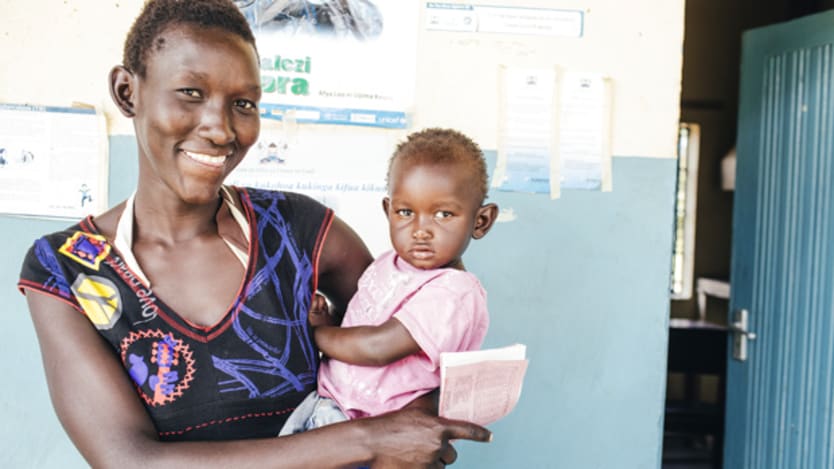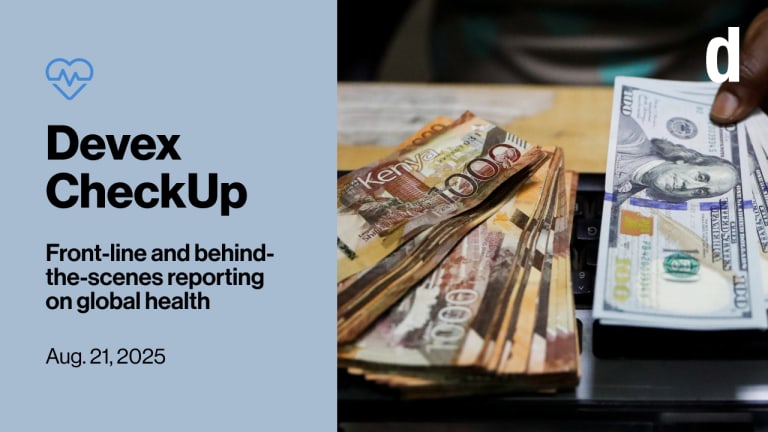
When the Millennium Development Goals were first conceived, no one could imagine the incredible political and financial commitments they would mobilize from the donor community, country governments and civil society.
For donors, the goals provided a shared agenda that elevated a new standard of collaboration and coordination above narrow parochial interests. For governments, the goals encouraged accountability by placing their performance on improving health, strengthening governance and reducing poverty in the global spotlight. And finally, for civil society, the goals created a platform of rights and responsibilities to drive advocacy forward.
Fourteen years later, the results are impressive. The number of people living on $1.25 per day has fallen from almost 50 percent to 22 percent since 1990. Universal primary education has been virtually achieved, and child mortality has been halved.
Yet, all is not rosy. The goals most linked to sexual and reproductive rights — three, four, five and six — are the most off-track. Eight hundred women die every day in the developing world because they cannot access adequate maternal health services. Only half of women receive the recommended amount of health care needed. Access to contraception has not kept pace with demand, and progress on teenage pregnancy has stagnated. No wonder: Globally, donors have fulfilled less than 30 percent of their funding commitments for family planning.
Ironically, these shortcomings underlie one of the greatest achievements of the Millennium Development Goals — the global recognition that access to contraception and the full range of reproductive health services is a fundamental right that creates pathways to opportunity for individuals, communities and nations.
The connections are simple and profound. A girl may make it to secondary school, but if there isn’t a clean, safe toilet where she can take care of her menstrual hygiene, she will not attend every month. If there are clean toilets but parents and policymakers do not prioritize giving her and her male peers access to comprehensive sexuality education and sexual and reproductive health services — including contraception — she may become a mother before she is ready. As an adolescent mother she is more likely to discontinue her education, more likely to face life-threatening complications during pregnancy and more likely to give birth to a baby with an increased risk of undernutrition and developmental delays.
With all these ripple effects, the MDGs have taught us that investing in sexual and reproductive health is surprisingly cost effective too: In fact, a recent study found that of the development targets on the sustainable development agenda, ensuring universal access to sexual and reproductive health would yield a phenomenal return of $150 for every dollar invested.
The evidence is clear: Accelerating progress on MDG 5 is accelerating progress on increasing prosperity, improving health and well-being, and reducing inequity. It is why ambitious new initiatives like FP2020 are so significant. With its goal of adding 120 million new users of contraception by 2020, FP2020 is a powerful engine for moving MDG 5 forward. And even as FP2020 drives global commitments to bring more care to more women in need, it has also highlighted the importance of quality and rights in making our gains more sustainable.
I call this the new standard of measurement.
It demands a newer, richer kind of evidence that requires us to look at a woman’s sexual and reproductive health in the context of her whole life. We must not only understand if we reach her, but what kind of care she receives when she visits her local hospital or clinic. Is it respectful? Is it confidential? Do they have the method of contraception she wants? If not, she may discontinue her contraception or still choose to deliver at home without a midwife or a doctor at her side. What then would we have achieved?
Last summer, the FP2020 rights and empowerment working group released a statement of principles that puts human rights at the center of all family planning and reproductive health efforts. The 10 principles provide a framework on which all sexual and reproductive health programs should be built. They also outline a clear role for civil society as partners in upholding and protecting rights. Combined with MDG 5’s other targets, they will propel access forward.
The Millennium Development Goals set an ambitious global mandate for development. And despite a few setbacks, the goals have created momentum that is moving us unequivocally forward on women’s health and empowerment. The contributions of FP2020 to MDG 5 will help to ensure that our progress is built to last.
In partnership with the U.N. Foundation and Fenton, Devex is examining the progress made toward achieving the Millennium Development Goals and U.S. contributions to spur global progress in our special “#GlobalGoalsWork” series. Join the conversation using #GlobalGoalsWork.
Join the Devex community and access more in-depth analysis, breaking news and business advice — and a host of other services — on international development, humanitarian aid and global health.








